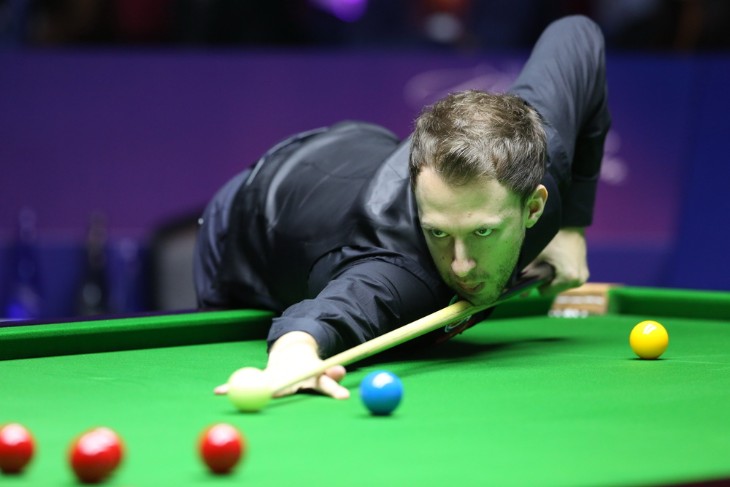Evaluating the odds and subtleties of snooker, a sport defined by precision, requires close attention to player performance, tournament conditions, and market trends. To uncover profitable opportunities in snooker betting, it's crucial to have an in-depth grasp of several aspects, including players' current form, their past performances, and the external factors that affect match results. This analysis explores the complex aspects of snooker betting, shedding light on vital elements and tactics necessary for making well-informed and strategic bets in this engaging sport.
Player Form and Performance
Recent Performance:
- Form Assessment: Evaluate a player's recent performance in various tournaments or matches. Consider factors like wins, losses, average frame scores, centuries scored, and overall gameplay.
- Tournament Specifics: Some players might excel in certain types of tournaments or under particular conditions. For instance, they might perform better in shorter or longer formats, or on specific types of tables.
Head-to-Head Records:
- Historical Data: Review the past matches between two players. Sometimes, certain players might consistently outperform others due to playing style, psychological advantage, or skill mismatches.
- Surface and Conditions: Consider if a player performs differently against a specific opponent based on the tournament's conditions or the type of table used.
Consistency:
- Understanding Player Patterns: Some players might perform exceptionally well in specific formats or tournaments. For instance, some might thrive in World Championship formats, while others excel in shorter formats like the UK Championship.
- Adaptability: Assess a player's adaptability across different conditions, tournaments, and formats. Consistency isn’t just about winning but also about maintaining a high level of performance across various scenarios.
Additional Insights:
- Mental Strength: Consider a player's mental strength. In high-pressure situations, some players may thrive while others struggle, affecting their consistency.
- Injuries and Recovery: Injuries can significantly impact a player's performance and consistency. Be aware of any recent injuries or health issues that might affect their gameplay.
Analyzing these factors collectively can provide a clearer picture of a player's current form, their historical performance against specific opponents, and their overall consistency. It's important to remember that while past performance can offer insights, unexpected circumstances or improvements in a player's skills can also influence outcomes. Always keep an eye on the latest news and developments in the snooker world to make informed betting decisions.
[promotion:173]
Tournament Factors
Tournament Format:
The format of a snooker tournament plays a significant role in determining which players might excel. Longer formats, such as the World Championship, often favour players who possess exceptional endurance, concentration, and tactical prowess. In these extended tournaments, players need to maintain consistency over multiple sessions and frames, requiring a different skill set compared to shorter formats like the UK Championship or Masters. Some players might struggle with the mental and physical demands of longer formats, impacting their performance despite their skill level.
Venue and Conditions:
Each snooker tournament is held at a specific venue with its unique characteristics. Some players might have a strong record at certain venues due to factors like familiarity with the table, lighting, or the atmosphere of the venue. Additionally, variations in table conditions, such as the speed of the cloth or the tightness of pockets, can significantly impact players' performances. A player who excels on faster tables might struggle on slower ones and vice versa, emphasizing the importance of adapting to different playing conditions.
Historical Significance:
Certain tournaments hold more historical significance or prestige within the snooker world. The World Championship, for example, is often considered the pinnacle of snooker and winning it holds immense value for players. The significance of a tournament can influence a player's motivation and determination, potentially leading to unexpected performances or upsets. Some players thrive under the pressure of high-stakes tournaments, while others might struggle to handle the intensity, affecting their performance.
Tournament Schedule and Preparation:
The scheduling of tournaments and the proximity between them can impact a player's performance. A packed schedule might lead to fatigue or lack of preparation time between tournaments, affecting a player's form. Conversely, some players thrive on momentum and might perform better when they have a series of tournaments in quick succession. Understanding how a player manages their schedule and preparation can provide valuable insights into their potential performance in a tournament.
Psychological Factors:
The mental aspect of tournament play cannot be overlooked. Players who have experienced success in a particular tournament might carry a confidence boost into subsequent editions, while those who have faced setbacks might experience added pressure or psychological barriers. Understanding the psychological dynamics surrounding a tournament and how players respond to the associated pressures can be crucial in assessing their performance potential.

External Factors
External factors in snooker can significantly influence a player's performance and, consequently, their betting odds. These factors extend beyond a player's skills and form, encompassing various external elements that might impact their game:
Physical Condition:
A player's physical health plays a pivotal role in their performance. Injuries or health issues can hinder their ability to play at their best. Even minor physical discomfort or fatigue can affect concentration and shot execution, ultimately impacting their overall gameplay. Monitoring a player's injury history and any recent health concerns is crucial in assessing their readiness for a tournament.
Mental State and Focus:
The mental aspect of snooker is as critical as technical skill. External distractions, personal issues, or mental fatigue can significantly impact a player's focus and decision-making during a match. Players experiencing off-table problems might struggle to maintain their usual level of performance, leading to unexpected outcomes. Similarly, a player who is in a positive mental state might display enhanced confidence and focus, improving their chances of success.
External Distractions:
Factors outside the game itself can also affect a player's performance. These distractions could include personal matters, media attention, or even the pressure of expectations from fans and sponsors. Players who are adept at managing external pressures tend to perform more consistently, while those who struggle with distractions might see fluctuations in their form.
Support System:
The support structure around a player, including their coaching staff, training environment, and personal support network, can impact their performance. A stable and supportive environment often contributes to better focus and preparation. Conversely, upheavals or disruptions within their support system can affect a player's mental state and, consequently, their performance on the table.
Travel and Jet Lag:
Snooker tournaments are often held in different locations around the world, requiring players to travel extensively. Jet lag and travel fatigue can affect a player's physical and mental readiness for a match. Players who have recently travelled long distances might take some time to adjust to the new time zone and environment, potentially impacting their performance in the early stages of a tournament.
Considering these external factors alongside a player's skill and form provides a more holistic view when assessing their potential performance in a tournament. While these factors might not always directly influence the outcome, they can contribute to fluctuations in a player's form and should be taken into account when making betting decisions.
[promotion:1149]
Market Analysis
Market analysis in snooker betting involves studying the betting markets, understanding odds movements, and evaluating the broader betting landscape to identify potential value bets. Here's a deeper dive into this aspect:
Bookmakers' Odds:
Bookmakers set odds based on their assessment of the probabilities of different outcomes. Analyzing multiple bookmakers' odds for a particular match or tournament can provide insights into variations and discrepancies in the perceived chances of different players winning. Significant differences in odds among various bookmakers for the same event might signal potential value opportunities.
Odds Movements:
Monitoring how odds change over time, especially closer to the start of a match or tournament, can offer valuable information. Sudden shifts in odds might indicate significant betting activity or changes in circumstances, such as injury news, player withdrawals, or insider information. Understanding why odds are moving can help in making informed betting decisions.
Betting Trends:
Studying betting trends and market sentiments can be insightful. Large volumes of bets placed on a particular player might reflect public sentiment or insider knowledge. However, blindly following betting trends without considering other factors might not always lead to successful outcomes. It's essential to assess the reasons behind these trends and whether they align with your analysis.
Line Shopping:
Comparing odds across different bookmakers and betting exchanges allows bettors to find the best available odds for a specific outcome. Line shopping involves seeking the most favourable odds for a bet, potentially maximizing potential returns. Different bookmakers might have varying opinions on player performance, leading to discrepancies in odds.
Expert Analysis and Insights:
Keeping an eye on expert opinions, analyses, and predictions from snooker analysts or professionals can provide additional perspectives. Expert insights might highlight factors that weren't initially considered, helping bettors make more informed decisions.
Understanding Bookmaker Biases:
Bookmakers might have biases or factors influencing their odds setting. These biases could be influenced by public perception, historical data, or even to balance of their books. Identifying potential biases can assist in recognizing where bookmakers might have underrated or overrated a player's chances.
Risk Management and Strategy:
Developing a clear betting strategy and managing risks is crucial in snooker betting. Avoiding impulsive bets and sticking to a predefined plan helps in maintaining discipline and avoiding significant losses.

Additional Tips
Research and Information:
Stay Updated: Keep abreast of the latest snooker news, player updates, and any relevant information that might impact player performance.
Statistical Analysis: Dive into detailed statistics, including frame win rates, break-building ability, safety play, and performance under pressure. Analyzing these stats can provide a deeper understanding of a player's strengths and weaknesses.
Betting Strategy:
Bankroll Management: Practice responsible bankroll management. Avoid placing excessively large bets that could significantly impact your finances.
Value Betting: Focus on finding value bets rather than simply betting on favourites. Value bets are where the odds offered by bookmakers are higher than the true probability of an outcome.
Consider Multiple Markets:
Explore Different Bet Types: Apart from outright winner bets, explore other markets like frame handicaps, total frames played, century breaks, etc. Sometimes, these markets offer better value than straightforward match-winner bets.
Player Analysis:
Match Context: Assess how certain players perform in specific match contexts. Some players might thrive in pressure situations or in come-from-behind scenarios.
Player Styles: Consider how contrasting playing styles might affect a match. A player known for aggressive play might struggle against a defensive opponent, and vice versa.
Utilize Betting Exchanges:
Trading Opportunities: Betting exchanges offer opportunities for trading bets during a match. Understanding the dynamics of odds movement during a live game can allow for profitable trading.
Track Betting Patterns:
Keep Records: Maintain a betting log to track your bets, outcomes, and reasons behind your decisions. This helps in analyzing your betting patterns and improving your strategies over time.
Psychological Factors:
Avoid Emotional Betting: Try to avoid betting based on personal biases, emotions, or attachment to a particular player. Keep a rational approach based on analysis and data.
Timing of Bets:
Early vs. Late Betting: Depending on your strategy, consider whether to place bets early, taking advantage of potentially higher odds, or wait until closer to the match for more updated information.
Adaptability and Learning:
Continuous Learning: Be open to learning from both successful and unsuccessful bets. Adapt your strategies based on new information and experiences.
Summary
In conclusion, successful snooker betting involves a combination of thorough research, analytical skills, and a rational approach. This mix helps in identifying valuable betting opportunities and minimizing risks. Achieving this balance is key to improving the chances of sustained success in snooker betting.
For more information:
[promotion:1150]








